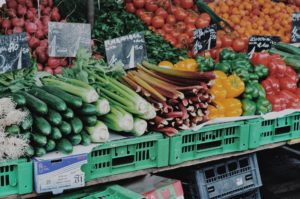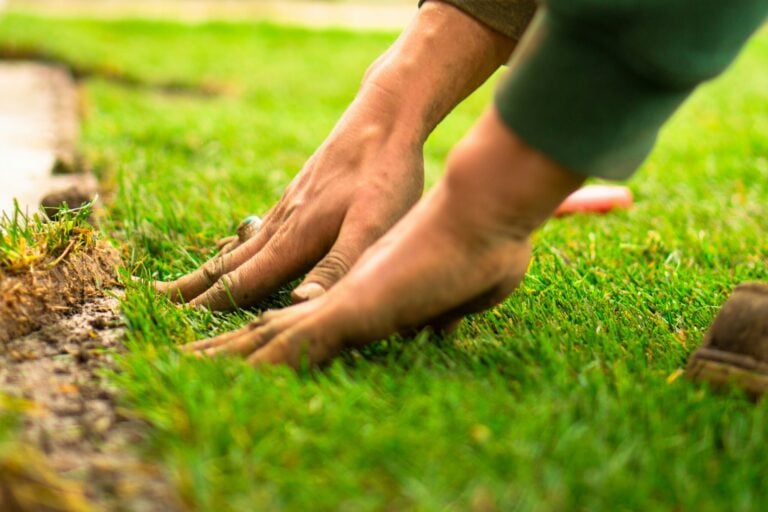7 Ways to Eat an Earth-Friendly Diet
 What we eat and the way we eat often impacts our environment more than we are aware. We may be conscious of certain things: we try to buy products in recyclable plastic and bring our own totes to the shops, but there is much more to eating an earth-friendly diet than the packaging we choose to take home with us.
What we eat and the way we eat often impacts our environment more than we are aware. We may be conscious of certain things: we try to buy products in recyclable plastic and bring our own totes to the shops, but there is much more to eating an earth-friendly diet than the packaging we choose to take home with us.
Let us take a look at seven ways we can adapt our diet to be more environmentally friendly.
Buy Local Foods
Your first step can be to start buying foods that are locally grown – anything from fruits, veggies, meats, and dairy that is produced in your area should be making it into your fridge and pantry.
Buying locally sourced produce means you are cutting down on transportation costs and the pollution transport causes. In addition to that, you are also supporting a local community and helping your own area to develop.
Shop at Farmers’ Markets
One of the best places to find local produce is your neighborhood farmers’ market. While you can also find items that are locally sourced in supermarkets and local shops, they need to go through some complex processes to get there (and not all of the proceeds will reach the actual farmer).
Markets, on the other hand, support farmers more directly. Plus, the produce sold there is often fresher than in the shops.
Buy Produce in Season
Buying seasonal produce supports both farmers and the environment, as it cuts down on waste. It also means you are getting the freshest fruits and veggies and reducing the farm-to-table route as much as possible.
Seasonal produce is often the healthiest option as well – but granted, you will need to branch out when winter sets in. You can make your contribution by freezing certain items when they are in season so you have a steady supply during the colder months.
Buy Organic Produce
This is especially true of meat. If you don’t plan on giving up meat entirely, try to purchase products made from animals that have been fed an organic feed. This will ensure the meat is free of hormones, antibiotics, and other harmful chemicals that are bad for both your health and the environment.
You can also choose to buy organically-grown veggies and fruits. This means they’re not treated with pesticides and other chemicals, and that they retain their true flavor and shape.
True, organic produce is often more expensive – so making your switch gradually or choosing to only focus on certain items can be a great starting point.
Eat Less Meat
Eating meat is actually the biggest contributor to global warming, as 51% of global greenhouse gas emissions come from livestock and their byproducts. By choosing to eat less meat, you can contribute to the reduction of these harmful gasses and help reduce environmental pollution.
However, do bear in mind that reducing the amount of meat will be a significant change for your body, so you need to find the right balance of other foods to add to your diet. Exploring the food pyramid can be a good place to start your research and discover the best combinations of plant-based ingredients to fuel your lifestyle.
Choose Less Packaging
A lot of the food we buy comes pre-packaged. The more you can reduce the amount of disposable packaging you take home, the better. That counts for recyclable packaging, too.
Start by buying fruits and veggies without any packaging (ideally at a farmers’ market), and carry several shopping bags for the purpose. Buy your meats fresh from a local butcher, and keep the packaging minimal and recyclable. You can even carry a dish with you as your own, zero-waste packaging.
Reduce Your Own Waste
We tend to throw out items that are perfectly fine, thereby contributing to the incredible amount of food waste.
Just because a fruit or a vegetable doesn’t look perfect doesn’t mean it’s not good to eat. Usually, you can just cut away the bit that has gone a bit brown and eat the rest. You can also often still eat items after their best before date. Just do a bit of online research, and you’ll discover plenty of items are good for weeks, even months.
Only buy items you are sure you are going to actually eat, and freeze anything you think might go bad before you get a chance to prepare it.
Final Thoughts
Eating a more eco-friendly diet is straightforward, though not always easy and affordable. Try implementing the tips that will slot into your lifestyle simply, and slowly work towards changing your habits more extensively.
Don’t expect yourself to change your lifestyle completely overnight, as you won’t be able to sustain the change. One small step at a time will do, and consistency matters most.


